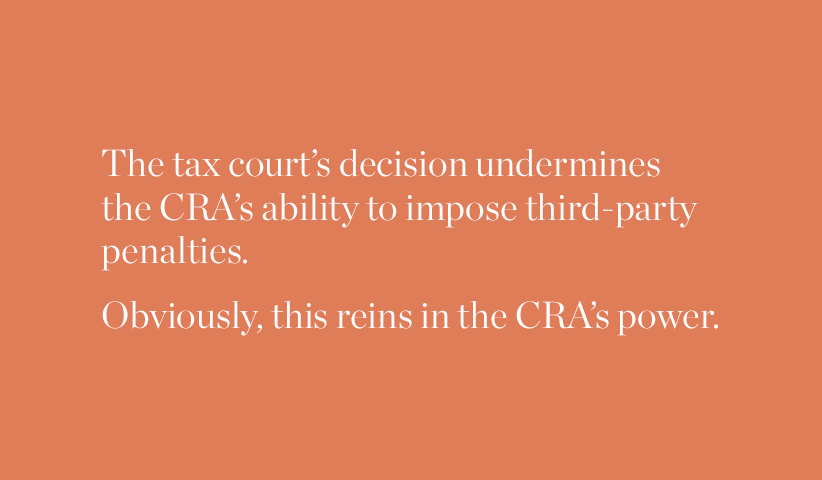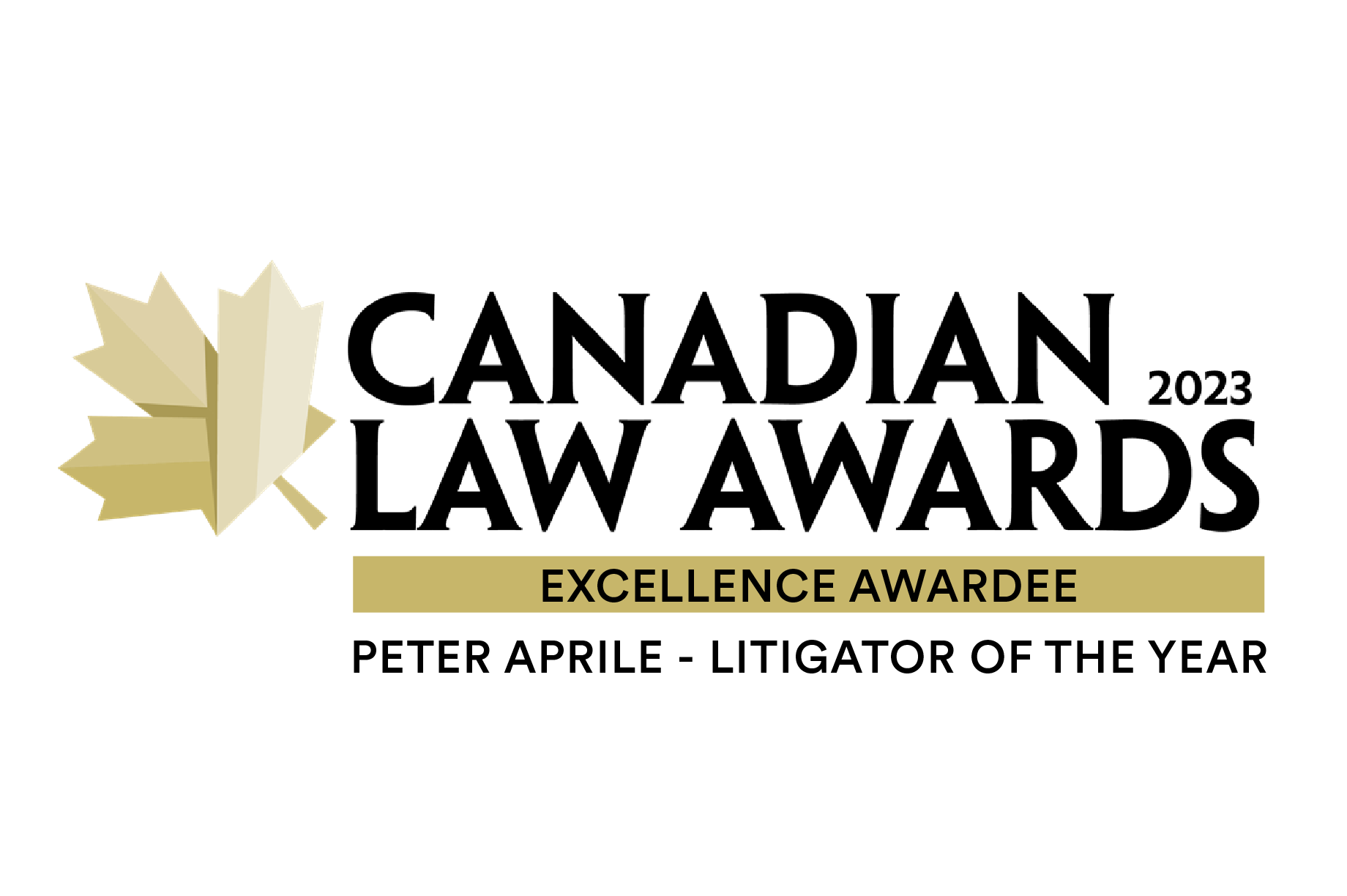
In its first decision on third party penalties, the Tax Court of Canada has curtailed the power of the Canada Revenue Agency; as expected, the CRA has already decided to appeal.
“The tax court’s decision undermines the CRA’s ability to impose third-party penalties,” said Peter Aprile, of ATX Law in Toronto. “Obviously, this reins in the CRA’s power.”
The decision in Guindon v. The Queen [2012] DTC 1283, handed down late last year, has “absolutely broken new ground,” said Adam Aptowitzer, a partner with Drache Aptowitzer in Ottawa and lead counsel for the taxpayer in the court case.
The CRA, which declined comment because of the pending appeal, had levied $546,747 in penalties against taxpayer Julie Guindon for her participation in a donation program the Minister of National Revenue argued she knew or should have known was making false statements. Two issues were before the court as a result.
First, the court looked at whether the third-party penalty imposed under s. 163.2 of the Income Tax Act was by its very nature a criminal proceeding. “Such a finding would entail farreaching consequences,” Justice Paul Bédard wrote in his decision.
The penalty provision, Aprile said, was an attempt by Parliament to impose a civil penalty on taxpayers, which has a lower standard of proof. “Criminal prosecution for tax evasion is much more rigorous,” Aprile said.
In his Oct. 16 decision, Justice Bédard said that, particularly in a criminal proceeding, the defendant can invoke her rights under the Canadian Charter of Freedom and Rights. “Notably, the right to be presumed innocent would raise the burden of proof from that of proof on a balance of probabilities to proof beyond a reasonable doubt.”
Aptowitzer and his co-counsel argued successfully that this should be the case. “Our position was that this was the kind of provision that should allow people to have their Charter rights. That is big news.
“The court found that this provision is penal and an individual is entitled to Charter rights. Therefore, the tax court doesn’t even have jurisdiction.” Specifically, Justice Bédard found that s.163.2 of the act created a criminal offence “because it is so far-reaching and broad in scope that its intent is to promote public order and protect the public at large rather than to deter specific behaviour and ensure compliance with the regulatory scheme of the act.

“Furthermore, the substantial penalty imposed on the third party — a penalty which can potentially be even greater than the fine imposed under the criminal provisions of section 239 of the act, without the third party even benefiting from the protection of the Charter — qualifies as a true penal consequence.”
The second issue before the court — whether Guindon, a lawyer, should have known something was amiss with the donation program — did not go in her favour.
Guindon’s lawyers argued that she had relied on the professional financial advice provided to her and believed that the property at the heart of the donation scheme actually existed. She wrote a legal opinion endorsing the program that was used for the donation program’s promotional pieces.
“Her conduct is indicative either of complete disregard of the law … or of wilful blindness,” Justice Bédard said.
“The appellant’s culpable conduct leads me to conclude that she would reasonably be expected to have known that the tax receipts were false statements,” he added. “The penalty would therefore be applicable if that penalty were a civil one.”
Having found that the penalty was, however, a criminal one, the fine does not apply, at least for now. Round two of the legal wrangling is expected to take as long as a couple of years, Aptowitzer said.
In the meantime, other taxpayers are waiting in the legal queue to see what happens. It is estimated that there are 64 cases worth at least $65-million in assessments yet to be heard on this issue. “All these cases will be affected, and it will change how future investigations are conducted,” said Aptowitzer.
The tax court’s decision stands apart from recent decisions increasing or reinforcing the CRA’s power under the Income Tax Act, Aprile said.
“I haven’t seen the judiciary clamp down. This is bucking the trend because the legislation is so flawed. It’s not a shift in perspective.”
Aptowitzer is optimistic the tax court’s decision on thirdparty penalties will stand the scrutiny of an appeal. “The judge spent the time to put in place a very well-reasoned and logical decision.”

.jpg?width=120&name=Counter%20Tax%20Litigators%20Logo%20Stacked%20(MidnightBlue%20on%20White).jpg)













.png?width=400&height=400&name=CT-How_Can_We_Help-22_july_NewGraphic_b(small).png)

.png?width=1386&height=1224&name=2025%20Legal500%20Elite%20Boutique%20Award%20(Badge).png)
.png?width=1386&height=1224&name=ITR%20Finalist%20Practice%20Leader%20of%20Year%20Peter%20Aprile%202024%20(Badge).png)
.png?width=1386&height=1224&name=2025%20Legal500%20Leading%20Firm%20Client%20Satisfaction%20Award%20(Badge).png)





.png?width=1386&height=1224&name=ITR%20Tax%20Innovator%20Finalist%202024%20Award%20(Badge).png)
